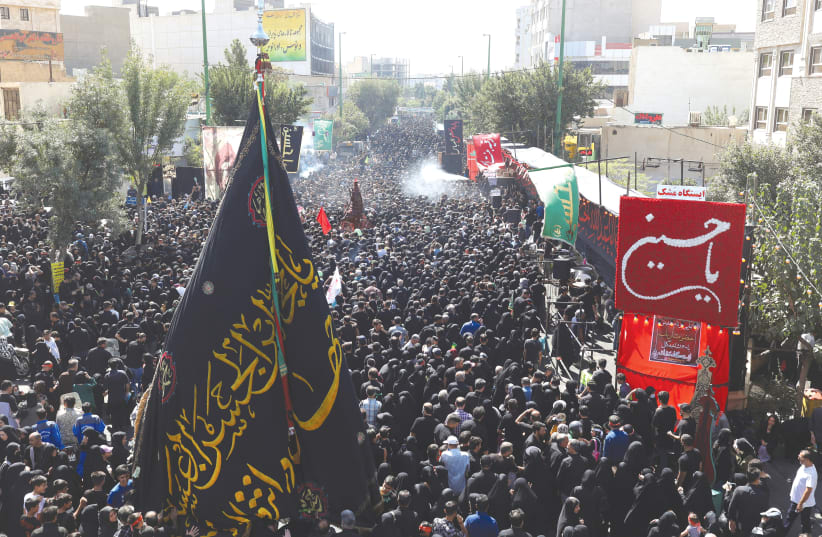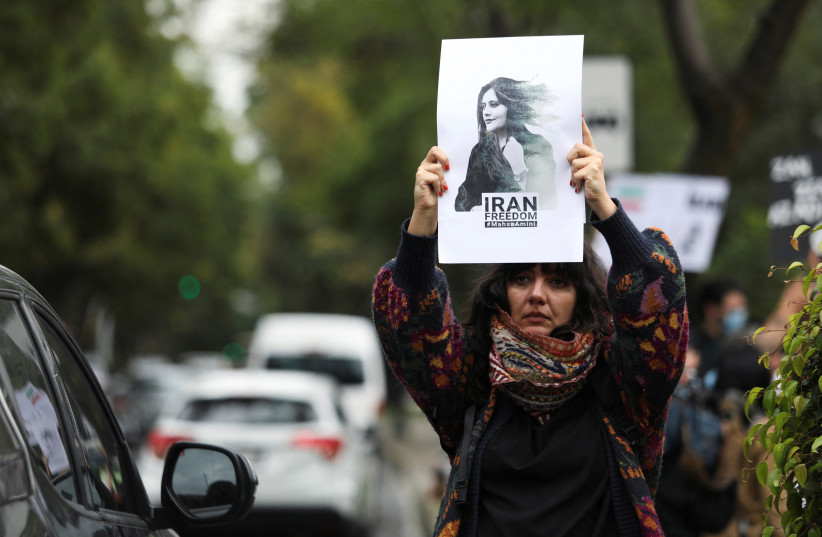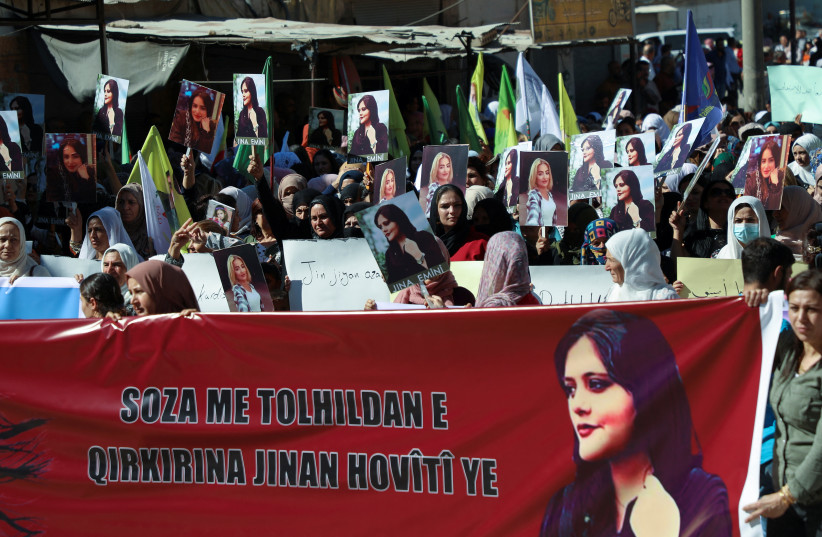With Western nations engaged in an uncertain process of negotiations to renew the agreement to restrict Iran's nuclear activities, they found themselves tempering their response to the death of Mahsa Amini in the custody of the Islamic Republic's "Morality Police," which set off a local and global wave of protests against the regime's draconian treatment of women.
The protests in Iran, which have been going on for more than two consecutive weeks and have been met by a crackdown from the government's security forces, have left at least 92 dead, according to the International Humanitarian Relief organization and the Iran Human Rights group.
Protests have also taken place in front of the Iranian embassy in many countries around the world in solidarity with the protesters' cause. Other forms of support for the protests have materialized on social media, with people across the globe sharing footage and images of the unrest as well as videos of women cutting their own hair in solidarity with Iranian women who are standing up to the demands of the regime.
Forgein governments condemning Iran
According to Thomas Gratowski, a geopolitics expert who heads Global Counsel's MENA office in Doha, such a massive global reaction is due to "the brutal nature of [Amini's] death."
Furthermore, says Joe Macaron, a US policy analyst who focuses on the Middle East, how the Iranian regime is perceived globally plays a part in the amount of media coverage and social media engagement surrounding the death of Amini and the consequences.
The recently concluded United Nations General Assembly, an annual gathering of world leaders at the UN headquarters in New York, served as a platform for many to express their condemnation of the notorious "Morality Police," Dr. Ramu C.M, a consultant on energy and international politics, told The Media Line.
Among those condemning the violence against the protesters were US President Joe Biden, who told the General Assembly that, “Today we stand with the brave citizens and women in Iran who right now are demonstrating to secure their basic rights.”
“Today we stand with the brave citizens and women in Iran who right now are demonstrating to secure their basic rights.”
US President Joe Biden to the United Nations General Assembly
German Foreign Minister Annalena Baerbock called the crackdown on the protests "an attack on humanity,” while Australia expressed concerns over "Iran's significant discrimination against women."
But, CM told The Media Line, "Many of these government leaders and representatives deplored the heinous act, but stopped short of directly blaming [President Ebrahim] Raisi's government."
He said that the "Morality Police" has been widely condemned for its actions, but the international community has been more circumspect in its criticism of the Iranian regime itself.
Some governments are speaking up and even taking measures, agreed Macron, but "at the end of the day how to react to this story depends on the interests of the government concerned and the nature of its relationship with the Iranian regime."
A lot of Western countries are already struggling to find a balance between their own interests when it comes to autocratic leaders and defending human rights in the Middle East, he said.
Gratowski posited that the protests around the world were serving to constrain Western powers who are attempting to revive the agreement to restrict Iran's nuclear activity.
"There is pressure from the protests on Western governments who face a complicated balancing act because of the nuclear talks which they would like to bring to a successful conclusion," he told The Media Line
This is especially the case with the Europeans as the energy crisis that the continent is going through means possible reliance on Iranian oil, Gratowski said. He also highlighted President Biden's desire to close the nuclear deal ahead of the midterm elections in November, when the Democrats could lose their majorities in the House and the Senate.
Overall, he added, "this is a complicated atmosphere to strike a deal that could give Iran billions of dollars in oil revenues."
If the Iranian response to the protests becomes more violent, Gratowski believes that it could prevent the United States from reaching a nuclear deal soon.
"I don't see the regime showing restraint. But this makes it hard politically for the US to continue the route of nuclear talks," he said.
C.M stressed that the nuclear deal is still vital for Western powers. "The US and the EU, especially the latter, need to keep the ball rolling in terms of negotiating with the Iranian government on the JCPOA," he said, referring to the agreement with Iran.
Once an EU embargo on Russian oil triggered by the Ukraine invasion comes into effect on December 5, it is crucial that the West finds a mechanism - either through a complete or phased lifting of Iranian sanctions - to allow for the replacement of lost volumes of Russian crude and oil products with those from Iran, he explained.
Because of that, C.M believes that the US State Department will likely use the domestic situation in Iran and the issue of women’s rights as a small "bargaining chip" in the JCPOA negotiations, which he says could serve as a catalyst for the renewal of the deal.
"At least, it is expected that the US would increase their pressure on the Raisi government to stop short of brutally quelling the uprisings like it had always happened before," he said.
On the flipside, he considers the possibility that "even the Iranian regime could want to show progress on the JCPOA talks to create a convenient distraction from the protests and uprisings within the country."
Macaron, however, believes at present the nuclear deal negotiations are not being affected by this issue.
Reaching a nuclear deal remains a priority for both the Iranian regime and Western governments, he said, adding that the protests in Iran have so far had no positive or negative impact on the already complicated and stalled talks.


